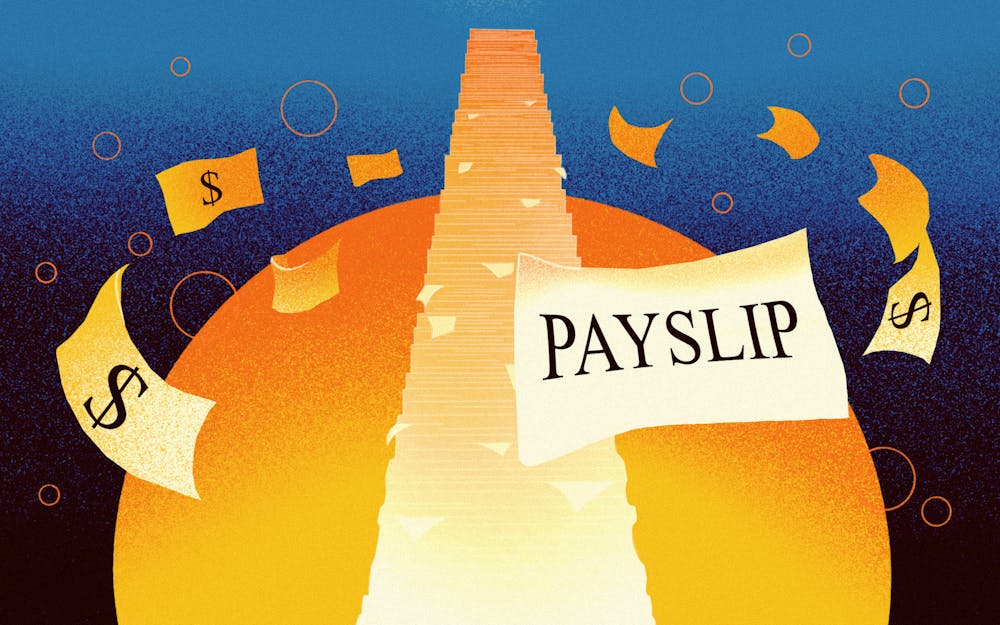Indiana’s Republican senators presented their plans for the 2023 session on Jan. 9. One of the eight senate bills proposed, Senate Bill 3, hopes to form a committee to review and examine the possibility of changes to state and local taxes.
Author of the bill, Republican Sen. Travis Holdman, said the bill will establish a two-year commission to study Indiana’s tax scheme. This includes property tax, corporate tax, sales tax and individual income tax.
“I just feel like it's time that we take a good look at it and see if there are tweaks or measures we can take to better position Indiana for growth and to be fair and provide equity for all Hoosiers,” Holdman said.
Indiana’s current income tax is 3.23%. Their goal is to make Indiana a zero-income tax state as long as the revenue is replaced, he said. Individual income tax includes taxes from pensions and social security.
According to the Indiana Transparency Portal, more than half of Indiana’s General Fund comes from sales tax. The General Fund currently accepts $2,857,000,000 from individual income tax. In order to decrease or eliminate income tax, legislators and economists will need to find a way to replace the entire income tax revenue.
“If we determine that we can find replacement revenue, we could eliminate the individual income tax,” Holdman said.
Holdman said the state and local tax review commission will study impacts of any changes and try to correct any inequalities that are within the tax structure.
Related: [National decrease in job openings may slow inflation]
Indiana’s General Fund takes revenue from income taxes and supports education, along with many other facets of Indiana. Holdman said if the revenue remains the same, there will be no impact to organizations that receive money from income tax revenue.
Bridget Stomberg, IU Kelley School of Business associate professor of accounting, said the tax system needs to be evaluated holistically. Decreasing income taxes could increase sales or property taxes for funding education and other facets in Indiana.
“It's just difficult to say in a vacuum whether it would be a good or a bad thing to reduce or eliminate the individual income,” Stomberg said.
States with no individual income tax have higher taxes in other areas, she said. For example, Tennessee has no income tax and receives most of its revenue from sales taxes.
“There's a concern from some economists that when sales taxes are high, that's disproportionately harmful to lower-income individuals, because they tend to spend a higher proportion of their wages on goods that are subject to sales tax,” she said.
Lower-income individuals are disproportionately impacted by sales taxes, and an increase in property tax would make homeownership more difficult to attain, Stomberg said.
In addition, Stromberg said the distributional equity of the current income tax needs to be studied and compared to any distributional equity in the event of a tax modification.
Alex Crowley, director of Bloomington’s Department of Economic and Sustainable Development, said he sees a decrease in income taxes as problematic due to the underfunding of multiple social commitments, including childhood education and social services.
Justin Ross, IU professor and public finance economist, specializes in state and local tax policy.
“I think the only realistic option for replacing that much revenue is going to be other taxes on consumption, probably the general sales tax,” Ross said.
Ross said lawmakers need to look at which groups will be affected by an increase in sales tax. Possible revenue replacements could be taxing digital goods and legalizing and taxing marijuana, he said.
Ross speculates that with lower income taxes, counties such as Monroe County may receive more income from citizens’ incomes, since they’d no longer have state taxes taken out. He said the county could increase their income tax rate, which wouldn’t affect the total rate reduction.



